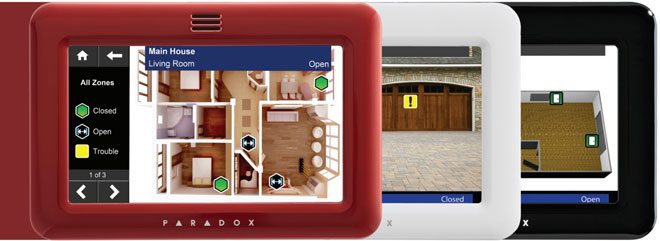According to Blueline Security in Wellington, NZ, insurance companies will often offer discounts where home alarm systems are installed – but most insurers will require your system to be maintained in good working order for policy to be valid. Alarm Watch in Wanganui concur, saying
“A big bonus is most insurance companies offer discounts for properties protected by monitored alarm systems.”
ASB Bank offers house and contents insurance, and notes that you should make sure:
- the alarm system has been professionally installed
- is tested regularly
- maintained in good working order
- set when your home is unattended during the day, and
- when you are away from home for a period of time.
They are not alone in this. According to research completed by New Zealand’s watchdog, Consumer NZ, discounts for alarms usually require the alarm to be professionally installed and, in some cases, monitored.
When it comes to alarm monitoring, Chubb Security list several features and benefits of 24/7 alarm monitoring, including the potential to reduce your insurance premiums.
ARC Security and Automation in Hamilton note that you would naturally be concerned if your alarm was not providing the protection you were expecting from it. It is therefore vital that your security alarm system is regularly serviced. Their qualified security technicians normally carry out security system servicing annually.
“Regular servicing helps our customers have confidence in their security alarm systems, giving them peace of mind.“
So, when it comes to arranging house and contents insurance, it might pay to ask about discounts relating to home security systems or home security monitoring.
However, having secured the discount, will it then work against you if you forget to set your alarm?
What if you deliberately don’t set it because you’re only going to pick up the kids and will be back quickly?
Insurers need to limit claims somehow, and one of the ways they do so is to comb through a long list of policy exclusions.
They might say you didn’t take reasonable care of your property or didn’t meet one of the policy conditions.
The list of “what ifs” in insurance is endless. But generally, the odd minor slip is ok.
So long as you usually set the alarm, you should be ok. Denise Bailey of IAG, owner of NZI, State and AMI, says, generally speaking, a one-off failure to set an alarm would not affect your claim.
“Typically IAG only requires that customers have an alarm as a condition of their insurance if they have repeatedly been burgled at their current address or have high contents sums insured i.e. more than $250,000.”
But if you’ve been provided cover at a discount on the condition you have a functioning alarm system and the alarm stops working, you must tell your insurer or you may not be paid if you’re burgled later, she says. The same goes if you decide not to use it anymore.
Tower insurance says it, too, would cover the claim, whether the alarm was activated or not. “It’s no different if you are away for a few hours or the weekend.”
But Tower wouldn’t cover you if the cleaner herself was the thief, under a policy exclusion for theft or deliberate damage by anyone who is lawfully in the house.
Both companies would cover you for deliberate fire damage if the cleaner decided to torch the place.
IAG’s Bailey commented that most insurers would accept these kinds of claims if the customer has taken reasonable steps within a reasonable time period to secure the property.
But it is not always so clear-cut. Bailey says the insurer would sometimes need to look at all the surrounding facts before deciding whether to pay.
“An obvious insecure window can be an invitation to some criminals. An open window that is quite visible and provides easy access to the dwelling – especially with a laptop visible – could be considered a reckless approach to the security of the property and the claim could be declined.”
So, before you sign up for house and contents insurance, shop around to see what discount you can get for your home, based on having a home alarm system.
Also, check your policy to see which inclusion, exclusion and limits apply to you. Its better to be safe than sorry!
Portions of this article have been sourced from a variety of insurers and news sites. For more information about insurance discounts and making claim click here.
